Better by Now
By Piper Gourley
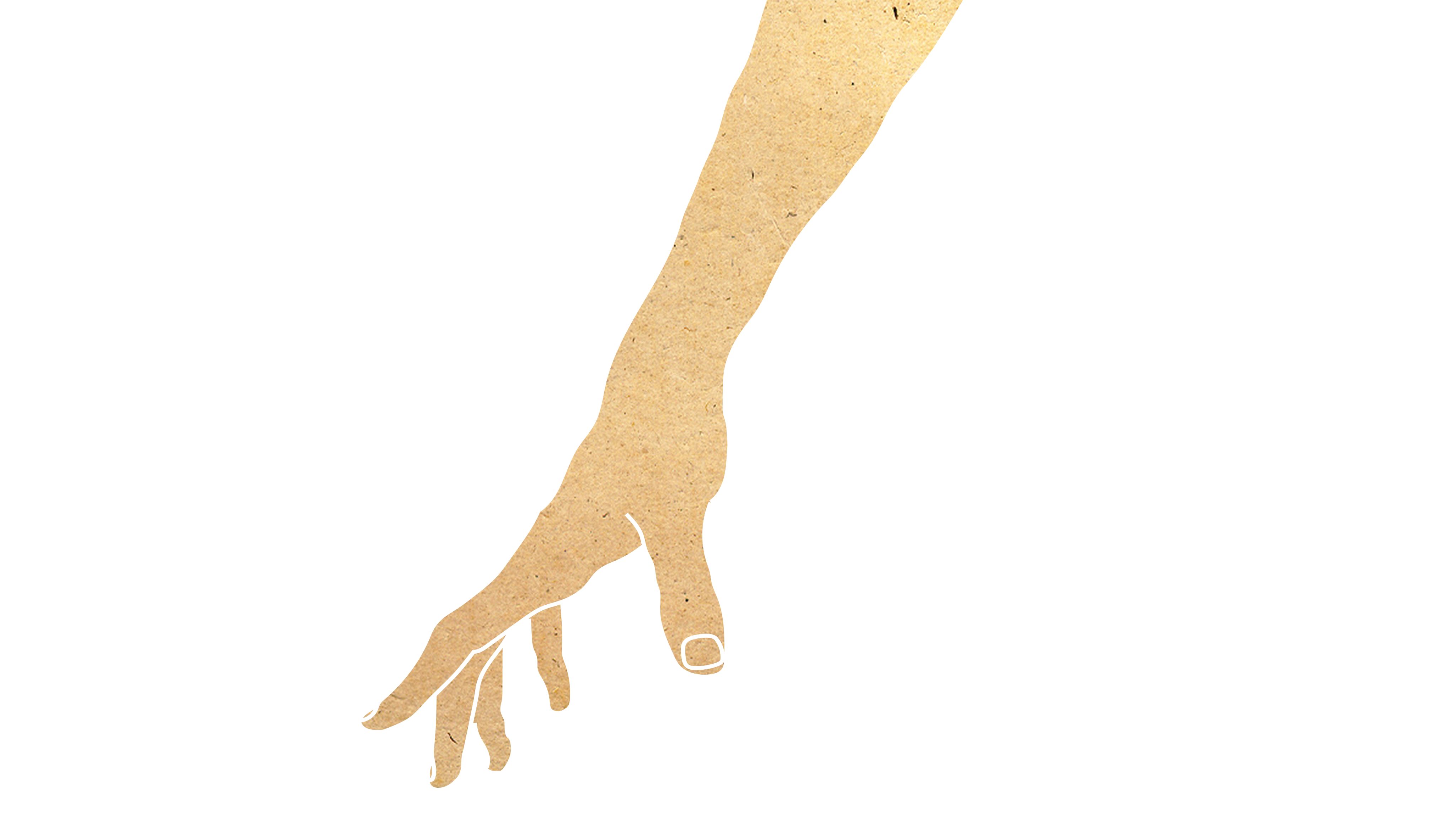
Dawn looked as gaunt as a streetlamp when Peter picked her up from rehab number four. In his mind, Peter fleshed her into a plumper version of how she looked last Thanksgiving, the last time Peter saw her, when she refused to eat any ham. The reality did not overlap. Dawn wasn’t let go because she had improved. Her insurance coverage ran dry. She struggled into Peter’s truck. A hospital tech handed Peter a meal plan, one he was tasked with keeping out of her reach. The last time Dawn accessed a paper copy, their mother found it blacked out with a Sharpie from the first day to the last.
Dawn buckled up. Peter might have hugged her, but that woman, a pale imitation of his twin, would fold under a hard squeeze. Too risky. Their dad owned a cabin on the outskirts of Maine, where they were headed until Dawn’s boyfriend, Arthur, could make the drive up from Fruitland to take her home. Three days. All Peter had to do was keep her alive for three days. Before Dawn stopped eating, starvation was an afterthought to Peter—televised suffering, call-to-action banners: DONATE TO FEEDING AMERICA! SAVE A LIFE! A life. Dawn, at twenty-six, already felt she wasted her own.
“You good to go?” Peter asked.
“Drive, Pete.” Peter fished for the gas, then reversed out of the lot, cautioning a long glance at his sister. The engine vibrated Dawn’s small body. “Thanks for picking me up,” she said.
“Sure,” Peter replied. “It looks like a nice place.”
“Yeah. Yeah, rehab is, like, the Hilton.”
“I’m sorry.”
“It’s fine. I’m not a kid, though. We can talk like adults.”
“Sorry.”
“I started a new book.”
“Oh? Who’s it by?”
“Writing. Not reading.”
Dawn experienced chronic unemployment, but she was a novelist on the side. A good one, when her brain wasn’t fried. To imagine Dawn creating anything in her current state was difficult. Peter worked as a writer, too, paid per-word for a sports column. The prior week, he mutated Sox sportscasts into dutiful prose, until Dawn’s present, more dire than his own, interjected.
“What’s your book about?” Peter asked.
“It’s not about anything,” Dawn replied. “Just lines and scribbles, right now.”
“An outline.”
“No. If it was an outline, I don’t think I would need to write it. If I could see it in my head, the full skeleton, it wouldn’t feel so urgent. It’s like…a pile of bones, now. I don’t know where they click.”
“I’m sorry.”
“Is that all you know how to say?” Peter kept quiet. “Peter?”
“Yes?”
“If I die, you’ll finish my book?”
“You’re not going to die, Dawn.”
“That’s not what I asked.”
Peter paused. “Have you eaten today?”
“I’ll take that as a no,” she replied.
“Ditto.”
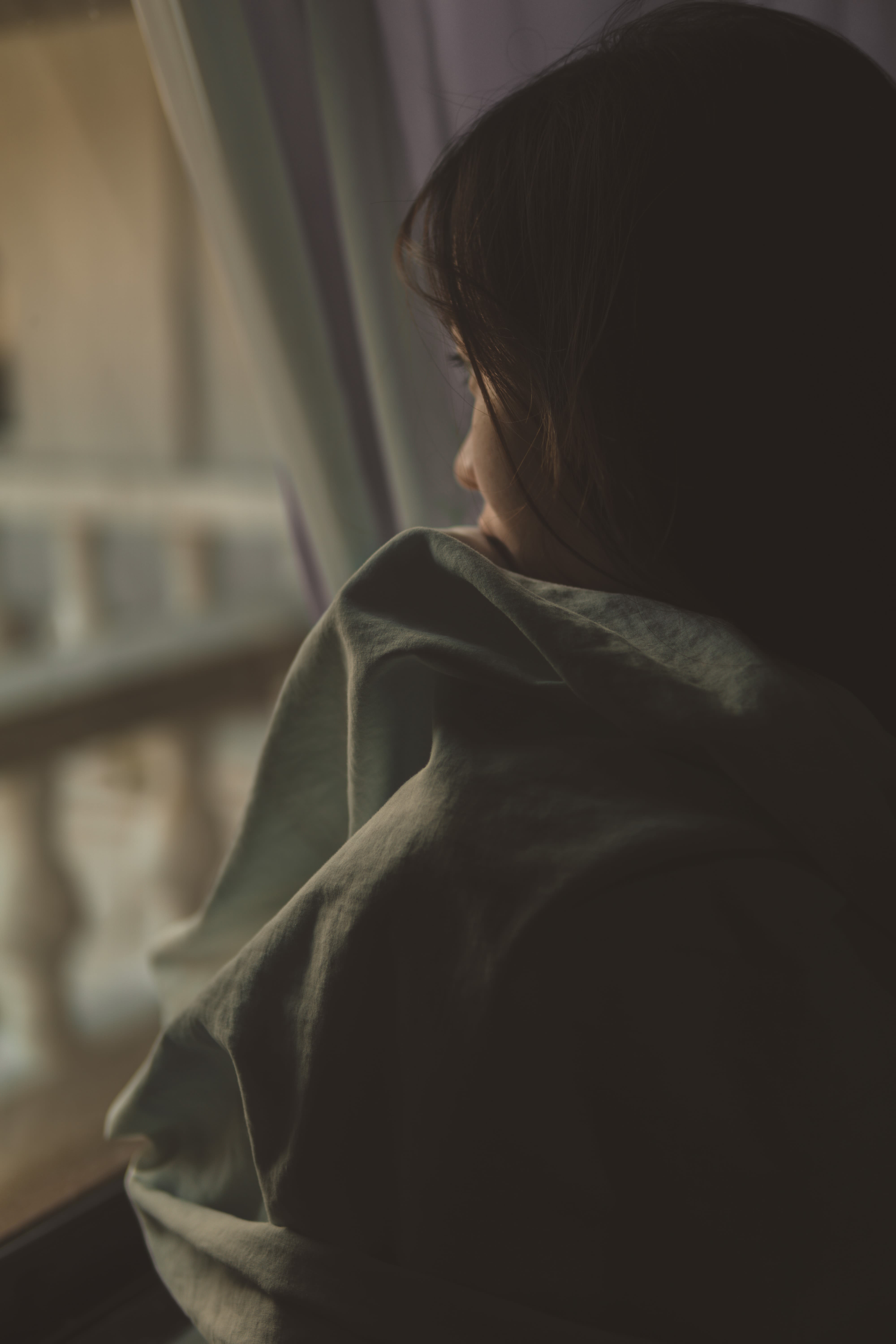
They didn’t reach the cabin until late in the day. The wilderness was marked by blobs of vegetative darkness. The palest shimmer of sunlight remained visible on the nearby lake, extending into forever at the golden hour. Out of habit, Peter rolled the windows down. Dawn jolted up. As a kid, she stuck her chubby arms into the air, letting the thrill of arrival cloak over her. Now, she folded into herself.
“Please. It’s too cold.”
Peter raised the glass, shut out the world. At the cabin, Dawn didn’t wait for him to put the truck in park before leaping out. She marched straight inside, straight to the guest room, their shared space during early summers. The door slammed. Peter felt too exhausted to negotiate dinner. He slipped her meal plan in the junk drawer, then tossed her suitcase by her door, listening to clothes roll beneath the plastic shell. She isn’t hungry, he thought, an empty lie. Three days, three days, three days.
Peter didn’t remember getting to his room, nor falling asleep. He woke up to thumping against the wall. To a body hitting the plaster. Was Dawn seizing? His feet located the hardwood, then he ran.
Nighttime collapsed each stretch of the hallway. He swung Dawn’s door open, no knock. A floor lamp cast an orange hue across the room. Dawn stood by the bed, arms up, as if halfway through a jumping jack. She examined Peter with doe eyes, like she didn’t recognize him. Sweat poured down her face.
“What’re you doing?” Peter asked.
“Researching,” she replied.
“For what?” She shrugged, a nervous gesture, then she darted to the lamp. Switched it off, sent them into velvet darkness. Peter heard the sheets rustle. In moments, her tinny voice reached him:
“Get out.”
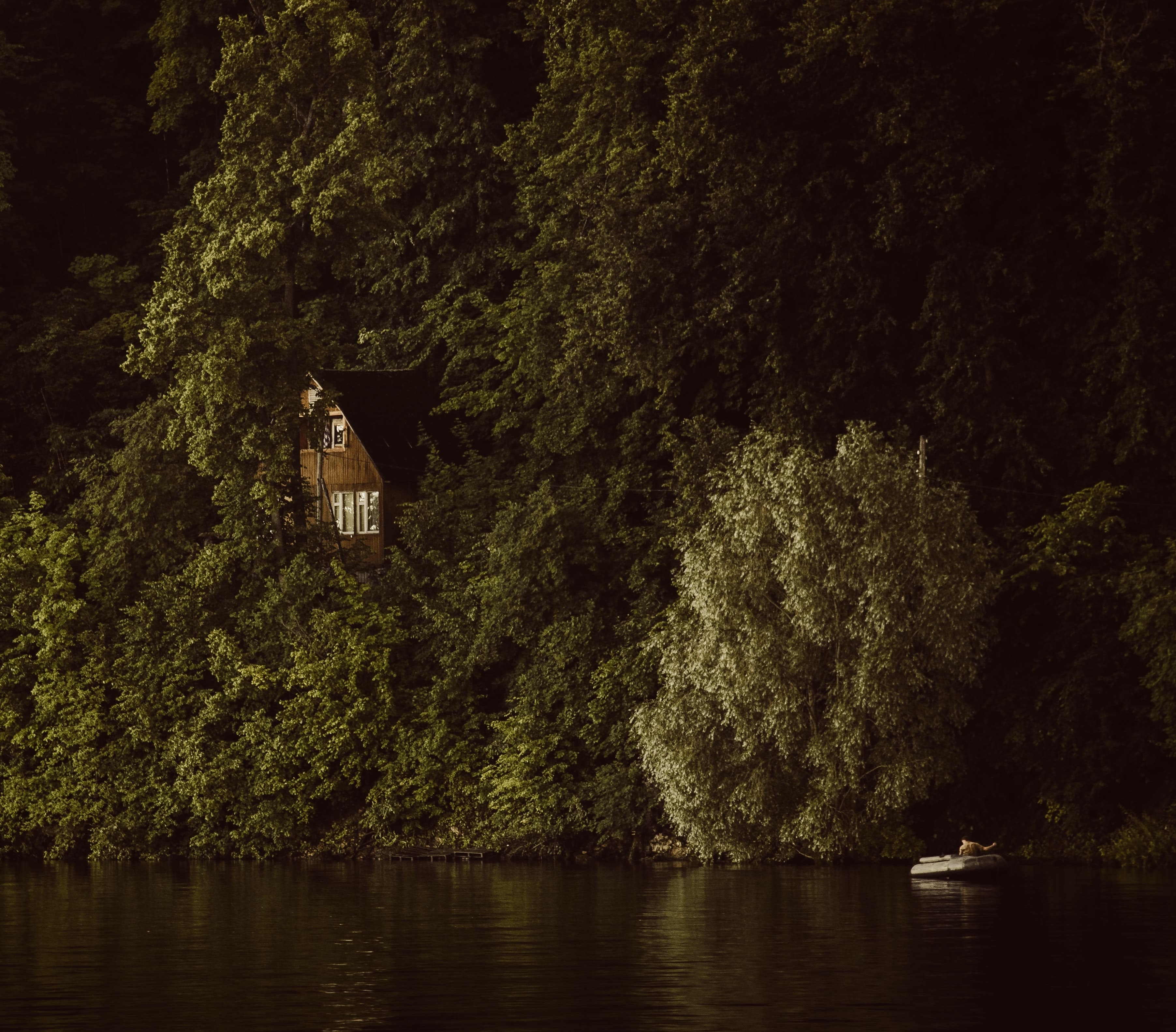
The next morning, they drank black coffee in the yard. Dawn promised that breakfast would follow. An hour passed since she drained her cup. Peter made no move for the kitchen. He felt a reluctance to quell his own hunger, a fresh shame. Both he and Dawn gazed down the road. The nearest cabins, mirrored blocks of auburn, remained stiff in the gray sunlight. In January, vacationers resumed city life, leaving weepy hammocks and holiday vehicles behind in the yards. Peter cleared his throat.
“Why don’t I make—”
“My character. She’s a dancer.” Dawn stared into her mug, her expression, swollen with guilt.
“Is that why you were bouncing around last night?” Peter asked.
Dawn nodded. “Do you know why people like dancers, Pete?”
“Tell me.”
“Their precision,” she replied. “When dancers are perfectly synchronized, it’s...it’s entrancing. That synchronism. Dancers, real professionals, look like they’re reading one another’s minds.”
Peter smiled, but his thoughts lingered on getting her fed. On the pantry: beans, oatmeal, rice.
“We’re out of sync,” Dawn said. “Me and you, Pete.”
“I know.” He paused, considered her triggers. “I can go to the store today. Get better food.”
Dawn’s eyes went glossy. Peter expected protest, but she offered a terse nod of agreement.
“What kind of dance does she do?” Peter asked. “Your dancer?”
Dawn lifted her thin hand, spinning her pointer finger like a top.
“Tap. Jazz. Ballet. Depends on the type of shoes.”
“Does she have all the shoes?”
“Depends on the type of day.”
“What type of—”
“If you’d leave me alone to write, I could answer all your questions in the draft.”
“Yeah, well. I’ll leave you alone if you eat something. Alright?”
She chose oatmeal. A tenth of her meal plan, but Peter didn’t argue, not up to facing off with disorder. Dawn ate, relocated around the yard, tried to outrun the dish. Her spoon shook as she stalked the bowl’s edge. Peter followed, ensuring she didn’t pitch bites to the roses. They performed this waltz at each family meal, each gathering. Finally, her spoon hit empty plastic. Shame cut her face like a wire.
“What are you thinking?” Peter asked.
“I don’t know. Do you think I could be a dancer?”
Her voice quivered, a tonal tuning fork. Peter felt a burn in his chest, an unkind answer. He earned his livelihood chronicling athletes, those who devoured red meats, avocado. Dawn barely had the fat to stand. A dancer? Maybe—before. Before she turned skeletal, before the lanugo, the hair loss.
“Yeah,” he said. “I think you could.”
She smiled. “I’ll be right back.”
Dawn returned with a list. Safe foods. Barely enough to feed a toddler. But debate was pointless. Peter drove into town. In Ralph’s, he spent a half-hour pretending Dawn wasn’t fractured.
He got ingredients to make the foods she ate when she would rather digest than die. Pasta, burgers, sushi. Parmesan. Breadcrumbs. Beef. Cheddar. Salmon. Rice. He felt weightless with each retrieved item. When he finished, he stared into the cart, waiting for the whirlpool of groceries to suck him in.
Then he put every ingredient back. He could hear Dawn’s voice: Too much. All those preservatives, it’s practically plastic. I don’t need it, Peter, I’m golden. He settled on Dawn’s list: cereal, veggies, chicken.
Anything that would get her to eat. He bought butter, too, hopeful to slip extra calories into dinner.
Peter checked out and left. His bladder stirred with nerves. He crossed the street, went looking for Dawn in the park outside the local hospital. Looked for someone like her, anyway — emaciated, but hopeful. Sick kids traipsed through the sterile playground. The landscape, haunted by their bodies, their acrid voices. In the sunlight, Peter couldn’t tell if they were dead, or even real. Corpses kicked on the swings, scrambled for the dirt, performing childhood choreography with syncopated footsteps.
“Why are you watching my kids?”
Peter located the voice: a mother, eyes rich with concern and curiosity. With life.
“Sorry,” Peter replied. “I was looking for someone.”
“Well, they’re not here.”
She was right. The person he was looking for was in the cabin, chewing her nails to keep from eating dry handfuls of oats. No—the person he sought was in his former apartment, at his graduation party, balancing Tacconelli’s pizza and mini fruit tarts on the lip of her plate. Or she was in their seventh-grade health class, learning about how pregnancy weight clings to your body, how you should watch what you eat, and replying, I’d rather die fat and happy than skinny and miserable. And Peter laughed, then, because he believed her. Everyone believed her. And it was too late to cover her ears.

Back at the cabin, Dawn sat at the table with printer paper, scribbling like a madwoman. She once told Peter that rehab banned all pens. She grew skilled at drafting with 8B Ticonderogas, despite the mushy texture, the fragmented lead. Peter watched her write. Entranced. He wondered if he prepared dinner quickly—if he fed her by hand, careful not to dribble—she might not even notice she was eating.
In the kitchen, Peter removed Dawn’s plan from the junk drawer, glanced it over, then replaced the paper beneath spare tools. The dietitian’s jargon looked unreal. He would improvise. It took an hour to whip up a meal Dawn might find acceptable: baked chicken and asparagus (buttered).
Dawn hadn’t left the dining room, still commanding her pencil, the one utensil Peter saw her master as she lost her touch for forks and spoons. Peter set the plate at her side. Dawn nudged the dish away.
“Hey. Put the pencil down.”
“In a minute.” Dawn continued to drill at the lead. A hole tore through the page. Beneath her, the font looked large, wild. Peter placed his palm down on the paper. Dawn tried to write around his fingers, a futile effort. Peter expected Dawn to stab his knuckles. Instead, she dropped the pencil.
“Just ask me,” she said.
“Ask you what?”
“What you’ve wanted to ask since we got here.”
Peter lifted his hands, a caught breath escaping him.
“Why are you doing this?”
“It’s what’s left, Pete,” Dawn replied, her voice bloated with grief. “It’s all I know.”
“What, so you don’t eat because you’re hopeless? That’s it?”
“No. I don’t eat because not eating is what I’m good at.”
“That’s not true. That’s...”
Only it was. Dawn spent years perfecting self-obliteration. She memorized the calories in everything from a cucumber slice to a drop of mayonnaise to a Ritz cracker. By then, weight held no measure in her addictive cycle of self-starvation. Restriction was all that made her feel competent. Peter wanted to remind her of how they once made fun of the women who cooked themselves by the lake, stealing shallow breaths when no one was looking, extending their rail bodies like violin bows. But they were smoky figures of a former lifetime, stuck in amber with the Dawn who ate when she was hungry.
“Did you learn anything at rehab?” Peter asked.
“Germ-X won’t get you drunk. When people tell you that you’re dying, they mean it. If—”
“Dawn—”
“And if you treat your body like it’s disposable, it’ll start to believe you.”
“Bodies are resilient, Dawn.”
“Pete, my thoughts are sawdust. I can feel my organs dying.”
“The people I write about, they tear and dehydrate all sorts of things, and when they just—”
“I can’t just eat, Peter.”
“That’s not what I meant.”
“I know what you meant.”
“Well, is this what you want, then?”
Peter picked up her plate and hurled her meal onto the table. Dawn didn’t flinch. She stared blankly ahead as streaks of oil drew veins across the papers in the line of fire. Vegetables rolled off the table’s edge, leaving a solitary asparagus and the bloated chicken breast orphaned. The veggie link formed a crude mouth, grinned up at them. Dawn reached forward, pressed her finger in the brine.
“This is...” She held her finger to her nose. “There’s butter in this.”
Dawn smiled. Peter felt like he had been slapped.
“My god. You’re like a child.”
“Oh, don’t you take my humor, too,” she replied. “At least let me have that much.”
Dawn stood, lifted her pencil, and left, like a serial killer whisking away a trophy. Peter eyed the dead meal. He and Dawn, synced into a shared species of pain, only they lacked the precision to mystify. Peter walked up the hall, slipped into bed. He thought of Dawn’s dancer. Pictured her zero-frame, collarbones bracing the spaghetti straps of a saggy leotard. Imagined her milky flesh, yellow eyes bulging like golf balls. The walls kept silent, but Peter’s visions spun like primas: cyclic, near collapse.
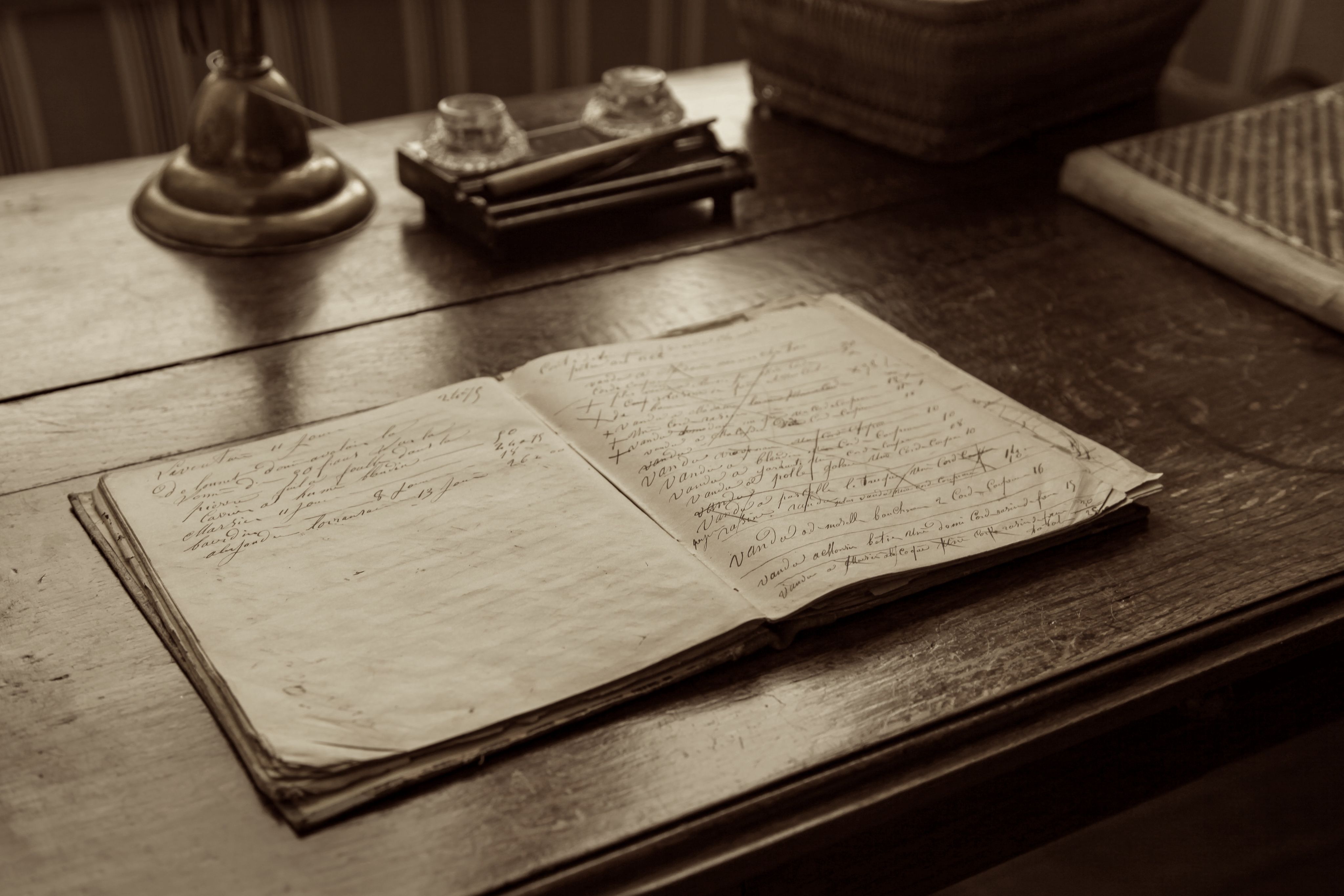
After a sleepless night, Peter went for an early run to escape the cabin. When he got back, Dawn sat at the table, dead-eyed. She flirted with unconsciousness, her expression full of lead.
“Dawn. What’s wrong?”
“My dancer is dead.”
“Dead?”
“I don’t know. I woke up, and she was gone.”
“Well, maybe if you—”
She held her hand up. “Don’t say it.”
“You need to eat something. You could bring her back, if—”
“I called Arthur. He’s coming today. He’ll be here in a few hours.” As if that were enough. As if that nourished her, absolved her of a lifetime of meals. But her tone carried another truth: I’m no longer your problem. Briefly, Dawn looked as if she might say more. Then she rose to her feet, turned towards the hall to pack. The sight of her spine jutting out of her pajamas made Peter feel nauseous.
“I’m sorry I yelled,” he said. “If that’s why you’re leaving. Then I’m sorry.”
Dawn paused, observing Peter—his healthy frame, his distraught face—with swollen eyes.
“I’m leaving because I love you very much, Pete,” she replied. “You should know better by now.”
Dawn locked herself in the bedroom until Arthur arrived. Peter didn’t dare jiggle the knob. He waited out front. When the sound of fresh rubber parting the gravel hollered a half-mile out, Dawn emerged.
Wide-eyed, new to earth, dragging her suitcase behind her. Arthur pulled in. Peter kept his eyes down.
“Do me a favor,” Dawn whispered, “and pretend you’re going to miss me.”
Peter didn’t need to pretend. Before he could say so, Arthur stepped out. He stared at Dawn sheepishly, then embraced her. Peter hurled her bag into the trunk. As Arthur re-started the engine, Peter helped Dawn into the van, shut the door. Gently. Dawn lowered her window. Her expression, clouded with commas, with waits. But Arthur pulled off before she could speak. Her slender face vanished. Dust tore up, littered the air. The van melted into ash; the world fell still. No spangle of light emerged to steal Dawn’s shadow from the yard. Still, Peter felt her absence, a wound on his conscious.
He moved inside, wandered drearily through the cabin, worried that his knees might fold beneath him.
An hour went by before Peter found the oily remains of Dawn’s novel on the counter. A single chapter. He thought to call her. Instead, Peter scooped up the pages and walked to the lake. He sat by the water and tried to decipher her scrambled prose. Every paragraph was written in malnourished handwriting. Her plot, blurry; misspellings, abundant. The dancer whirled from line to line, weighted by fat trails of graphite. And there was no ending. No ending. Only a hanging word, stained by butter.
Peter pulled the pages into his chest. Held the skeleton close. He closed his eyes and imagined Dawn back to life: seventh-grade, round-bellied, infinite—her ears, shielded by Peter’s chubby fingers.
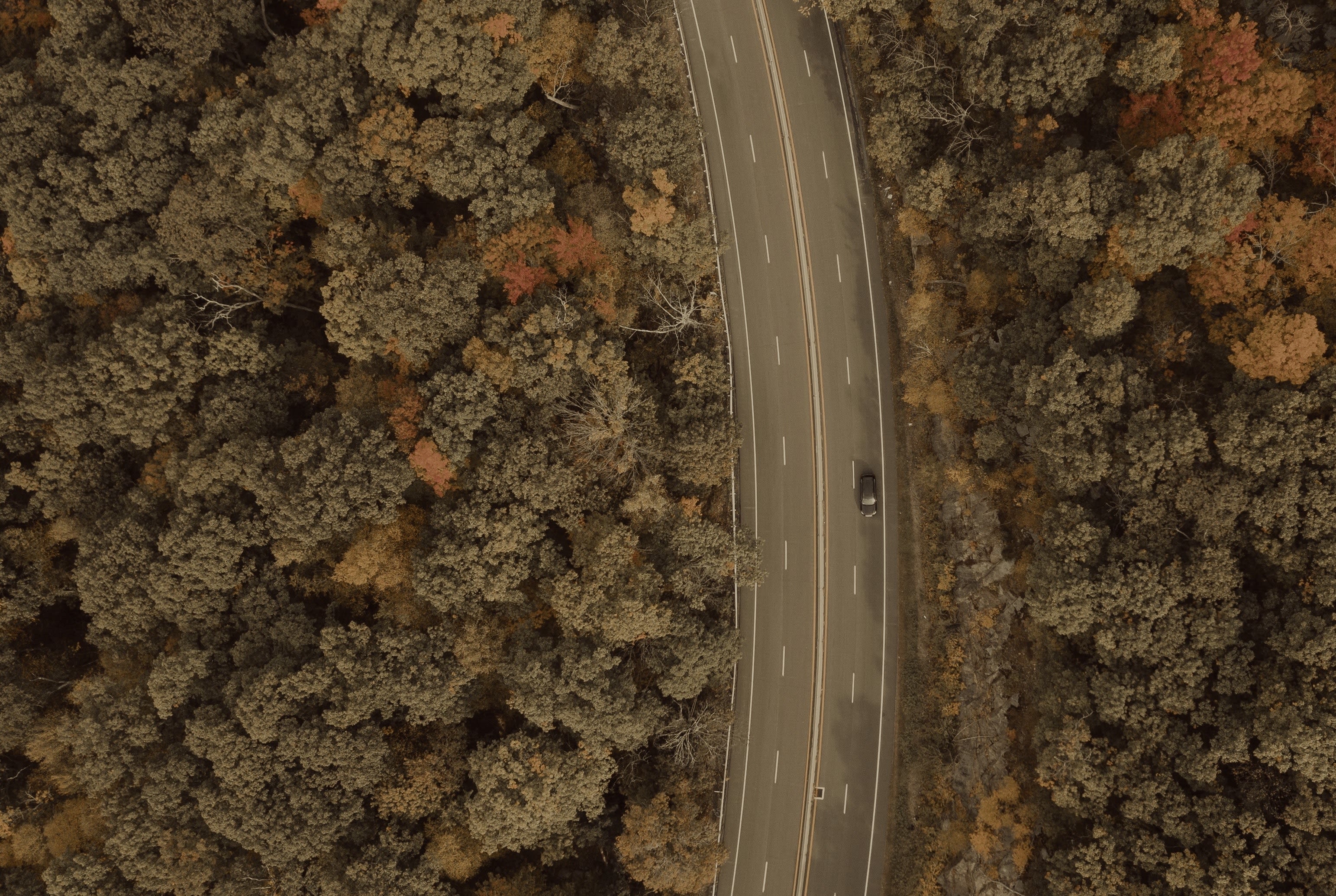
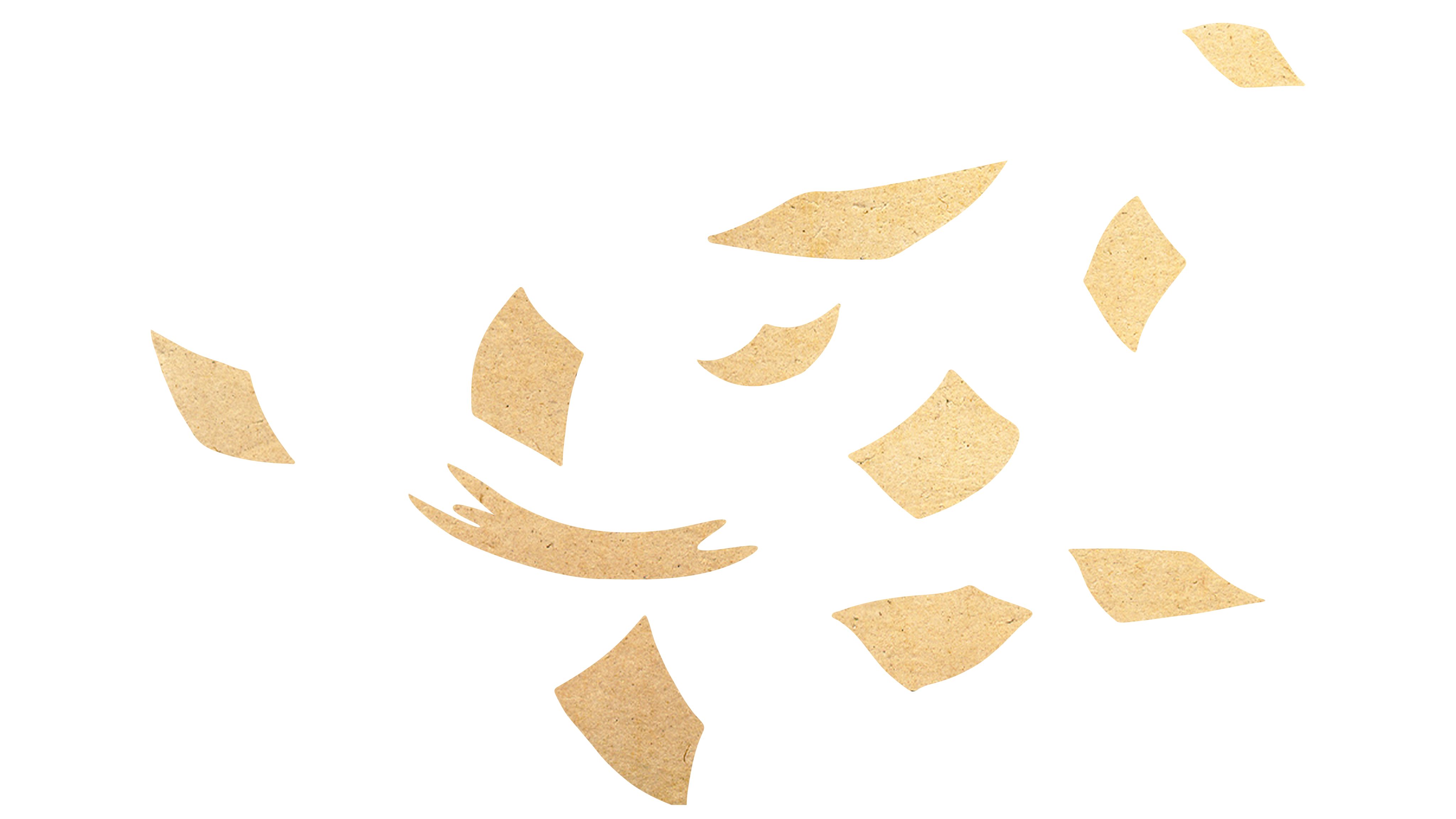

The 2021 Provost’s Prize for Creative Writing
Piper Gourley graduated from the University of Houston in spring 2021 with a degree in English with a concentration in creative writing. Originally from San Antonio, Gourley now attends Chapman University in California and is studying for an MFA in creative writing.
The Provost’s Prize for Creative Writing is awarded twice each year – once for poetry, once for prose. Each award provides a cash prize of $2,500. Underscoring the importance of writing across all disciplines at the University, the competition is open to all UH undergraduates. Piper Gourley is the 2021 winner for prose. Winners are selected by a panel of faculty members from the Creative Writing Program. For more information, including previous winning entries, please visit uh.edu/provost/students/current/creative-writing.
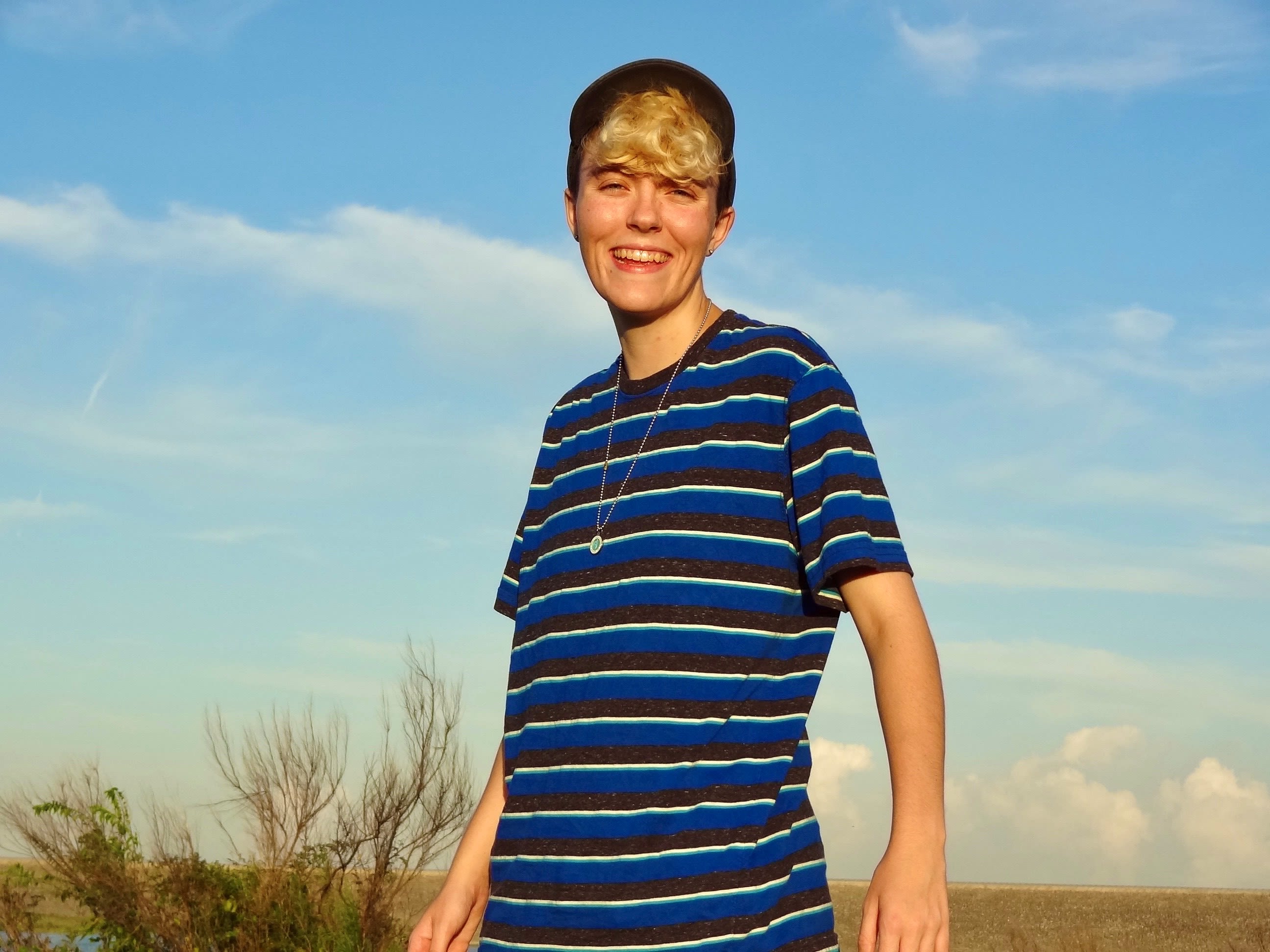
Piper Gourley
Piper Gourley
